
Founder Behind Historic China Bicycle Bust Starts Over in NYC
In February last year, a tiny coffee store with red neon signs opened at Gramercy Park, one of
1970-01-01 08:00
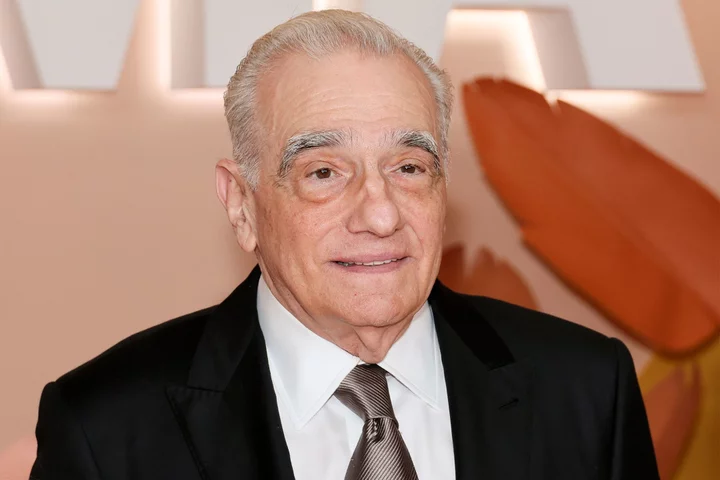
Martin Scorsese Sued for Taking $500,000 Without Working on WWII Film
Legendary film director Martin Scorsese was sued for allegedly accepting a $500,000 payment to executive-produce a World War
1970-01-01 08:00
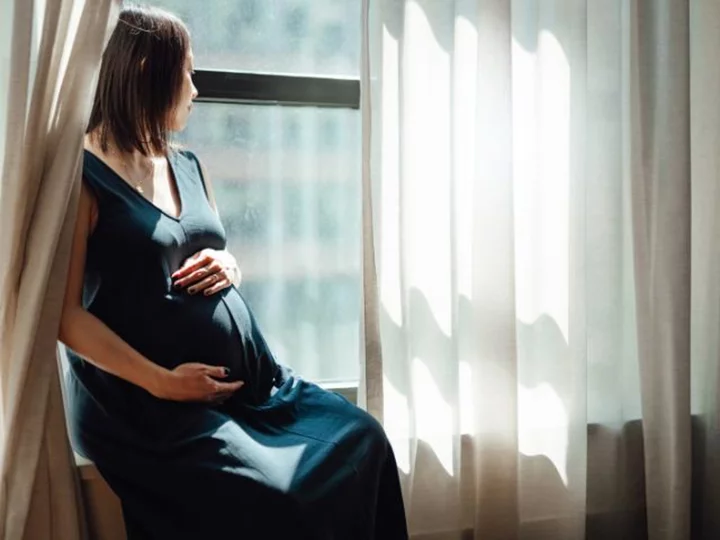
Antidepressants and pregnancy may be a more nuanced conversation than you think
Many people want the healthiest pregnancy possible for their baby — and often they think that means doing it with as little medication as possible. But when it comes to antidepressants there may be more to consider, experts say.
1970-01-01 08:00

Drew Barrymore shares candid Mothers’ Day post about checking into rehab as a teen
Drew Barrymore has shared a “vulnerable” post about entering rehabilitation treatment at just 13 years old in honour of Mothers’ Day. On Saturday (May 13), the 48-year-old Hollywood star reflected on legally emancipating herself from her parents after a two-year stay at a drug rehabilitation center. In her blog post, the Drew Barrymore Show host also explained how growing up in the spotlight has influenced how she parents her own children. “When I got emancipated by the courts at 14 years old, the umbilical cord was severed, and I have not been the same since,” the Charlie’s Angels star wrote. “It was necessary for me to step away and start to become my own person. And at the age of 14, my own parent.” Barrymore shared that her mother – Jaid Barrymore – admitted her to a youth program for drug rehabilitation when she was 13 years old. The hospital, called Van Nuys Psychiatric, was located in Los Angeles, California. “Once the door shut behind me, my stay lasted almost two years,” she said. “I was in for the long haul. I bonded with a lot of the kids, because like me, they did not know where to put their anger and they did not know how to live life anymore without the need to get high or self-destruct in some form and fashion.” The Never Been Kissed star explained how the rehab center was a “revealing and healing” experience, from meeting with therapists to learning how to set boundaries. “Kids love feeling safe, and having boundaries is one of those crucial bumper rails,” she wrote. “I lived a boundaryless life and job. And this place, as hellacious as it was, it was exactly what I needed from the too much excess my life had become on the outside. “ Her two-year stint at the rehab center also taught Barrymore how to process her own emotions and understand the “foundations of telling your truth”. “Your feelings. Your faults. Your hopes and wishes. Your hurts. What and where you wanted to get to in life. And – very important – who was going to help you on your path and who would you have to let go,” she said. “For me, at the end and when I got out, it was my mother.” Despite winning emancipation from her parents at just 14 years old, Barrymore described how she “found family” in her friends and colleagues. Now, Barrymore has two daughters of her own – Olive, 10, and Frankie, nine – whom she shares with ex-husband Will Kopelman. Still, becoming a mother has brought up her own feelings about her rebellious childhood. “Being a mother constantly triggers everything from my own childhood now,” Barrymore wrote. “I live in an often-petrified state of thinking about my past and wanting to have things different for them. I want them protected. I want them to grow up slowly. I want family around and traditions and rules and boundaries.” While the 50 First Dates star went on to say that motherhood has been the “greatest thing I will ever do in my life without question,” she admitted that she still needs “to continue to figure things out” so that she can “disembark from my past and live in the present”. Barrymore concluded her candid blog post by describing a recent conversation she had with her own mother on Jaid’s birthday: “I texted her. It simply read ‘Happy birthday, Mom,’ and she wrote back, ‘Thank you so much! I’m incredibly proud of you and send you love.’” “It was the biggest gift I could have ever received. To know that she is proud of me,” the actor wrote, before adding a sweet message to her own daughters. “And to my girls… I just hope I can be someone who makes you feel safe. And that you can laugh with. And that you can tell me anything. I’m here for it. I’m in the circle with you… for life.” On Instagram, fans applauded Drew Barrymore for sharing the “open and raw” blog post. “Thank you for being vulnerable and sharing,” said one fan, while another wrote: “You are beyond inspiring.” Drew Barrymore has often spoken about her complicated childhood, ever since she rose to fame in Steven Spielberg’s ET the Extra-Terrestrial when she was seven years old. The child star, whose father John Drew Barrymore was also an actor, has since published multiple memoirs about her experiences with addiction as a teenager, including 1990’s Little Girl Lost and 2015’s Wildflower. In a 2015 interview with The Guardian, Barrymore referred to the youth treatment center at Van Nuys Psychiatric hospital as an “institution”, and revealed that it was the rehab center professionals who suggested she legally separate from her mother and be declared an adult at 14. “It was a very important thing to experience for me. It was very humbling, very quieting,” Barrymore recalled at the time. “Maybe it was necessary, because I came out of there a more respecting person. And my parents didn’t teach me that, and life wasn’t teaching me that. I came out in a very different way… but I still was me.” Most recently, Drew Barrymore shared in an essay last November that giving up alcohol has been “one of the most liberating things in [her] life”. The Ever After star, who previously revealed she hasn’t drunk alcohol in four years, reflected on how important it’s been for her to prioritise herself, even when it has felt “selfish” to do so. “Maybe our definition of love changes throughout our lives, but I truly believe so much love goes outward,” she wrote. “One of the bravest things you can do is slay those dragons and finally change an awful cycle in which you’ve found yourself stuck. For me, it was to stop drinking.” Read More Drew Barrymore mocks her viral dancing in the rain video in Wednesday-themed skit Drew Barrymore reveals she hasn’t been in a relationship since she stopped drinking alcohol Drew Barrymore admits to having a ‘boring’ sex life: ‘I’ve tried everything’
1970-01-01 08:00

Elle Fanning says her body ‘creepily shifts’ as she adjusts to wearing corsets
Elle Fanning has detailed how her body has “creepily formed and shifted” so that she is now more comfortable wearing corsets while filming The Great. The 25-year-old, who plays Catherine the Great in the popular Hulu period series, said she has “got used to” wearing the restrictive garments. Fanning is currently starring in the third season of the satirical show alongside Nicholas Hoult, who plays Peter III of Russia, and Gillian Anderson, who plays her mother, Joanna Elisabeth. In a new interview with Insider, she was asked whether wearing corsets gets any easier as many of her costumes involve them. “It actually does, I will say. It does get more bearable,” she told the publication. “I have got used to them now.” Fanning added that at the start of filming for each season, she has to readjust to wearing the elaborate, confining undergarments that are designed to cinch the waist. “And then your body creepily forms and shifts and it becomes easier,” she continued. “Sometimes, yeah, they’re not the most comfortable.” Nevertheless, the Maleficent star has adapted to wearing corsets so well that she can “do anything in a corset”, she said. The elaborate outfits, hair and makeup showcased in The Great won the series an Emmy for outstanding period costumes in 2022. Costume designer Sharon Long previously detailed the fashion choices for Fanning’s character, which often exaggerate her figure. Speaking to IndieWire last year, Long said: “The size of [Catherine’s] skirt was an interesting device to use. We kept her as tiny and tight at the top as possible and her skirts as large as we could go, and she moves through the set and takes up space.” Fanning recently spoke out about the negative feedback she once received after she was rejected from a big franchise film. “I didn’t get a part once for something big because – it might not have just been this reason, but this was the feedback that I heard – was because I didn’t have enough Instagram followers at the time,” she told Josh Horowitz on his podcast Happy Sad Confused. “That’s something I firmly don’t believe in, for not getting a part. Fanning is the younger sister of child star Dakota Fanning. She has starred in hit films such as Super 8 and We Bought a Zoo, as well as the TV series The Girl From Plainville. Read More Elle Fanning says she was rejected from big franchise film over Instagram follower count Rebel Wilson shares first pictures of baby Royce’s face to mark first Mother’s Day TikTok Tattoogate: Award-winning tattoo artist vows to ‘fix the wrongs’ for woman at centre of scandal Fans defend Kyla Pratt for dressing casually to The Little Mermaid premiere 11 lightweight SPFs your skin will love Beyonce kicks of Renaissance tour in string of glamorous outfits
1970-01-01 08:00

Memorial Day Travel Boost to Stoke Demand for Gasoline and Jet Fuel
The US summer travel season is kicking off with forecasts for the third-busiest Memorial Day on record, driving
1970-01-01 08:00
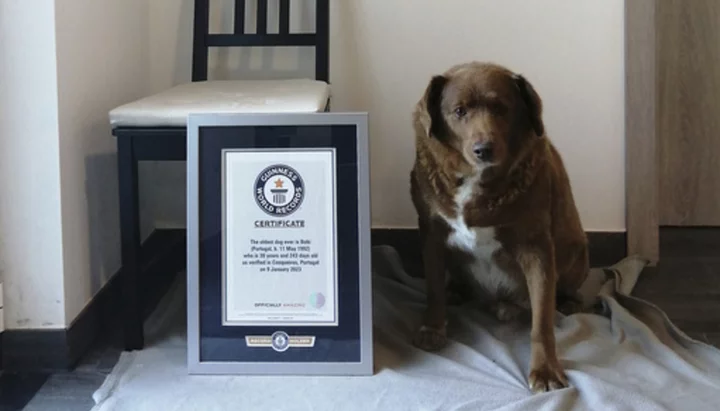
World's oldest dog celebrates 31st birthday, according to Guinness World Records
Guinness World Records says the world’s oldest dog recently celebrated his 31st birthday
1970-01-01 08:00
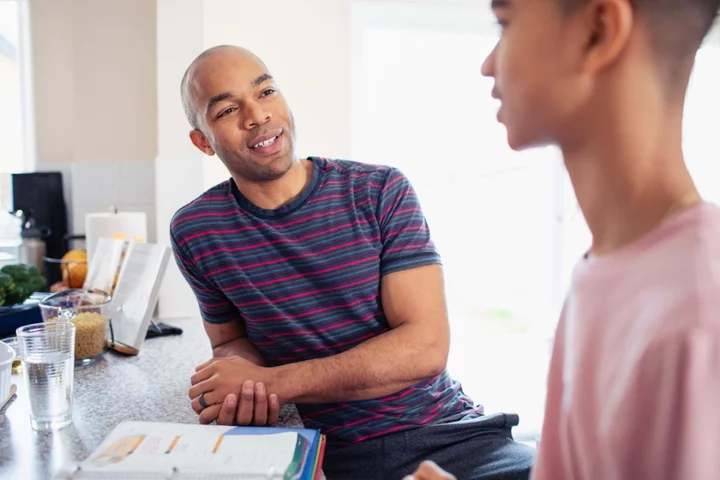
9 actually useful things you can do to support teens this exam season
Exam season is underway, and many teenagers might be feeling overwhelmed about the important tests they’re facing over the next few months. “Sitting exams is often one of the most overwhelming and high pressure experiences teens face, and students often put immense pressure on themselves,” says Lara McIvor, a revision expert at Save My Exams. “For parents with children taking exams, it can be difficult to know how best to support their child without being too involved or under-supportive. “As parents and teachers, it should be our mission to ensure students have access to clear support systems, coping mechanisms and study techniques over these challenging few months, and we should all be better educated in the warning signs of stress in teens.” And Matt Buttery, CEO of the Triple P Positive Parenting Programme, adds: “This can be a stressful time, but the good news is that parents can support young people and help remove some of the pressure around exam season. By setting a positive example and encouraging them, you can help ensure they remain happy and healthy, as well as reach their full academic potential.” So what can parents and carers do to actually make the whole exam experience better for teens? 1. Encourage them to chat with you Encourage open communication, and if your teen seems stressed, ask if they’d like to talk through revision together, or more broadly discuss their concerns, suggests Buttery. “It’s important your child knows you’re there for them if they need you,” he stresses. 2. Set up a quiet study area Ensuring your child has an optimum place to study without distractions is vital to their success, McIvor says. “Often concentration can wane, so making sure there are limited external distractions – such as loud music or TV – will allow for the best results and prepare them for their silent exams,” she says. 3. Don’t just rush to make them feel better It’s vital to acknowledge what teenagers are feeling, rather than just trying to make it go away, stresses psychologist Dr Audrey Tang. “One of the most important things anyone can do is validate their right to feel as they do,” she explains. “We’re not very good at sitting with anxiety and often rush to try and make it go away or to feel better, and this can lead us to quick fixes which can include unhealthy behaviour choices such as not bothering to try, often led by unhealthy thoughts like ‘If I don’t try, I can’t fail’.” 4. Help teenagers unpack their feelings Encourage teens to analyse or unpack how they’re feeling about their exams and revision, advises Tang. “If we take a moment to respect our feelings, and try to unpack exactly what we’re worrying about, we may be able to work out what we need to do next,” she explains. For example, is your teen’s anxiety caused by them not understanding some things, and if it is, which specific bits are causing the problem? Or is it linked to knowing their parents are stressed and not wanting to add to it, and if that’s the case, are other services available? “When we begin to unpack our feelings, rather than suppress or deny them, we have a better idea of what action is going to help us the most,” Tang explains. 5. Help with visual prompts Creating an ongoing learning environment throughout the exam period is key, says McIvor. She suggests sticking notes with key quotes, equations, etc on them around the house in places where your child can always see them. “This can be really useful for some students as it allows for constant exposure to materials,” she explains. 6. Avoid ‘toxic positivity’ If a teenager says things like, ‘I’m so stupid’, or ‘I’m rubbish at everything’, it’s natural for parents to tell them they’re brilliant, observes Tang. “Unfortunately, this has the effect of not validating those emotions, and the opportunity to understand what they’re trying to say is lost,” she explains. “A better way to navigate that discussion would be to acknowledge the feeling with something like ‘I’m really sorry you’re feeling that way’, and asking for more information.” 7. Be a good role model Role modelling healthy ways to manage your own anxiety is hugely important, stresses Tang. “Why would you expect a young adult to listen to you if you aren’t showing in your own practice that what you’re suggesting works?” she asks. And Buttery advises parents to lead by example by staying positive and calm when talking about exams. “Avoid using phrases such as, ‘You must be nervous’,” he says, “As you may risk accidentally making an otherwise calm child more stressed. Children learn a great deal about how to manage their behaviour and deal with difficult situations from their parents. By demonstrating calm and resilient behaviour, parents can have a positive influence on their children’s ability to cope with adversity.” 8. Try stressbusting techniques together Tang suggests practising self-care or stressbusting techniques together, such as affirmations with deep breathing. One technique, she says, is to get your child to note down everything they need to do and its relative importance on a pie chart, where the size of the slice shows the importance of the activity. Then ask them to draw on a scale of zero in the centre, to 10 on the outside, where they are in each segment. “This gives them a visual representation of what they need to do, and where they are, as well as an indication of the areas they’re neglecting, and how important those areas are,” she says. “By having everything on one pie chart, it might feel a lot more manageable.” 9. Maintain the family routine Ensuring family dinners and other rituals remain part of daily life can help teenagers cope with exam stress, as routine is predictable and reassuring at a time of pressure and uncertainty. Maintaining structure can also help your child plan their downtime, stresses Buttery, who adds: “It’s important to ensure they’re taking time to relax and unwind, whether by watching their favourite TV show, playing a game, or hanging out with friends.” Read More Charity boss speaks out over ‘traumatic’ encounter with royal aide Ukraine war’s heaviest fight rages in east - follow live Children In Need removes Pudsey’s bandana to show not all challenges are visible Is your child too anxious to go to school? What’s the link between the menopause and anxiety?
1970-01-01 08:00

Does British tourism really need the royal family?
The royal family does bring tourism to the UK. But if the royal family were to disappear, would the UK's tourism industry suddenly implode?
1970-01-01 08:00
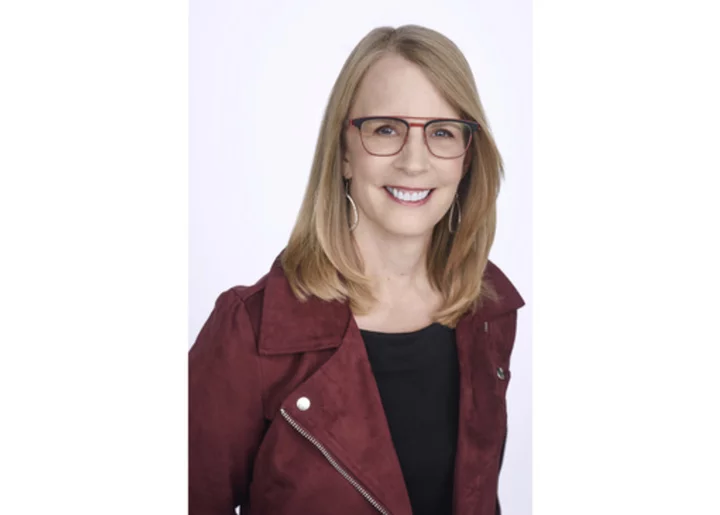
Liz Weston: 3 steps to downsize in a hurry
Despite our plans, life sometimes throws a curveball
1970-01-01 08:00

Montreal bike festival heralds release from grip of COVID
In early June, Montrealers will line sidewalks, toot horns and pound drums as swarms of cyclists wend their way through the iconic spaces of that bicycle-mad city
1970-01-01 08:00

Don't use sugar substitutes for weight loss, World Health Organization advises
The World Health Organization said a systematic review of the available evidence had suggested that use of non-sugar sweeteners "does not confer any long-term benefit in reducing body fat in adults or children."
1970-01-01 08:00
